RORIPPA
Rorippa
Scopoli, Fl. Carniol. 520. 1760; Fl. China @ eFloras.org 8:132; Fl. North Amer. @ eFloras.org 7: 493; Fl. Pak. @ eFloras.org p.186.
Annual to perennial herbs of damp places, usually with a slender tap root or root stock. Stem erect or prostrate, simple or branched. Basal leaves petiolate, rosulate or not, simple, entire, dentate, sinuate, lyrate or 1-3-pinnatisect. Cauline leaves petiolate or sessile, cuneate, attenuate, articulate or sagittate at base, margin entire, dentate, pinnatifid or pinnatisect. Racemes usually ebracteate, elongated in fruit. Flowers small. Sepals 4, free, ovate or oblong, erect or spreading, margin often membranous. Petals 4, free, mostly yellow, sometimes white or pink, obovate, spatulate, oblong or oblanceolate, apex obtuse or emarginate, claw sometimes distinct, about as long as sepals; petals rarely absent. Stamens 6, tetradynamous, rarely 4 (the outer pair abortive) and equal in length; anthers ovate or oblong, obtuse, rarely apiculate. Nectar glands confluent, often subtending bases of all stamens. Ovary oblong to suborbicular, many-ovuled; style obsolete or distinct; stigma capitate, entire or slightly 2- lobed. Siliquae linear-cylindrical, ellipsoid or almost spherical, mostly sessile, bilocular, dehiscent; valves convex, membranous, usually glabrous; septum membranous; seeds mostly biseriate, suborbicular, reddish-brown, with finely reticulated surface.
86 species
Rorippa palustris
Rorippa palustris
L., Besser, Enum. Pl. Volhyn. 27. 1822; Naqshi & Javeid, Geobios 3: 165. 1976; Fl. China @ eFloras.org 8:135; Fl. North Amer. @ eFloras.org 7: 501; Sisymbrium amphibium Linn. var. palustre Linn., Sp. Pl. 657.1753; Rorippa islandica auct. non (Oeder) Borbas, Jafri in Nasir & Ali, Fl. Pak. 55: 189. 1973; Dhaliwal & Sharma, Fl. Kullu Dist. 140. t. 4. 1999; Nasturtium palustre (L.) DC., Syst. Nat. 2: 191; Hook. f., Fl. Brit. Ind. 1: 133. 1875; Collett, Fl. Siml. ed. 2: 30. 1921 (Reprint 1980).
Annual herbs, found in wet/ moist habitats, 10-50 cm tall, glabrous, rarely hirsute. Stem erect, simple or often branched above, ribbed, reddish-purple. Basal leaves many, rosulate, withered early; petiolate, petiole up to 7 cm long, slightly swollen at base, amplexicaul; leaf blade lyrate- pinnatisect, 6-15 (-20) cm x 1-5 cm, lateral lobes up to 7 on each side of midvein, oblong or ovate, smaller than terminal lobe, lower ones distinct and narrow, upper ones large and broad. Margin of lobes irregularly dentate, serrate, crenate, rarely entire, apex subacute to obtuse, both surfaces mostly glabrous, sometimes sparsely hirsute adaxially or abaxially. Cauline leaves gradually smaller, petiolate or subsessile, lyrate-pinnatisect as basal ones or ovate- lanceolate, 1.8-5 cm x 0.5-1.8 cm with lateral lobes reduced or absent. Inflorescence terminal or axillary corymbose raceme or raceme, up to 10+ cm long, elongated in fruit. Flowers ebracteate, bisexual, hypogynous, small, 1.5-2.5 mm long, ca. 4 mm across, yellow; pedicels 5-6 mm long, fruiting pedicels up to 10+ mm long, divaricate or slightly to strongly reflexed, slender, straight or curved. Sepals 4, free, oblong, 1.5-2.5 mm x 0.5-0.8 mm, erect or spreading, margin membranous. Petals 4, free, yellow, spatulate or obovate, 1.5-2.5 mm x 0.5-1.0 mm, obtuse or emarginate, claw small. Stamens 6, tetradynamous; filaments 1-2 mm long; anthers ovate or oblong, obtuse, ca. 0.5 mm long. Ovary oblong, ca. 2 mm long, many ovuled, 20-90 per ovary; style obsolete, stigma capitate. Fruit (siliquae) sessile or shortly stipitate, oblong, ellipsoid or oblong- ovoid, with small beak, often slightly curved, 4-10 mm x 1.7- 2.5 mm, valves convex, not veined, membranous. Seeds biseriate, brown to yellowish brown, ovoid or subglobose, colliculate (with small elevations), ca. 0.5 mm x 0.5 mm.
Common Names: Marsh Yellow Cress
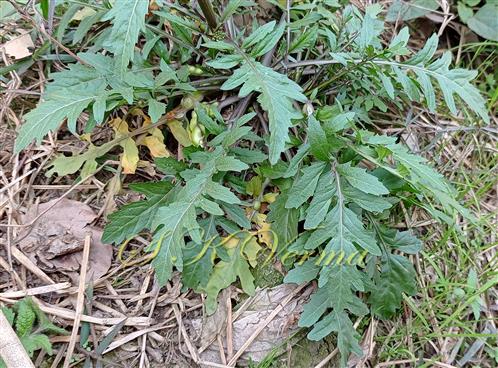
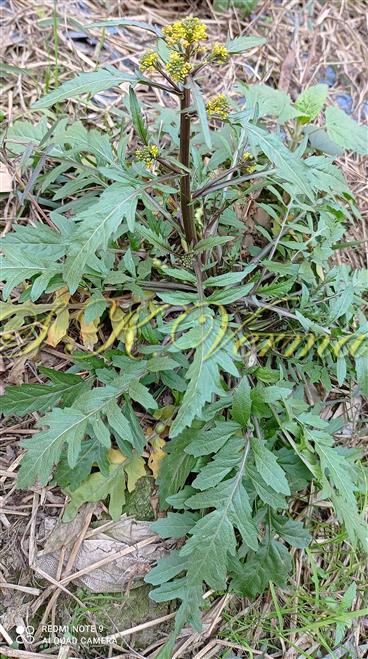
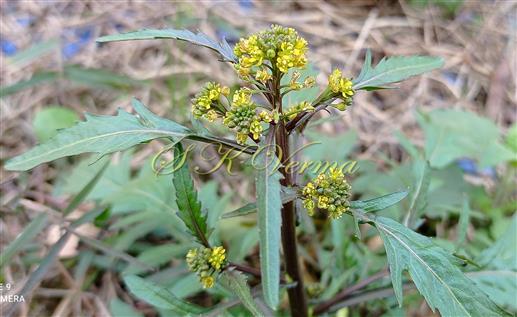
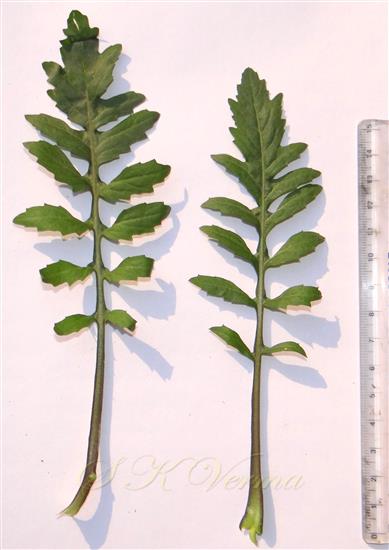
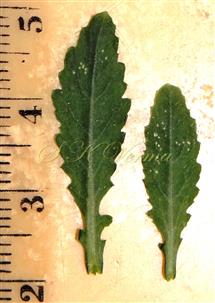

-134645.jpg)

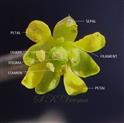

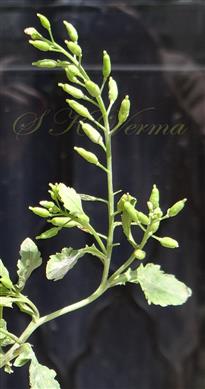

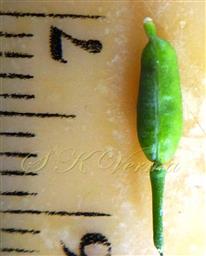
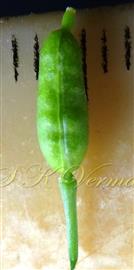

1435.jpg)







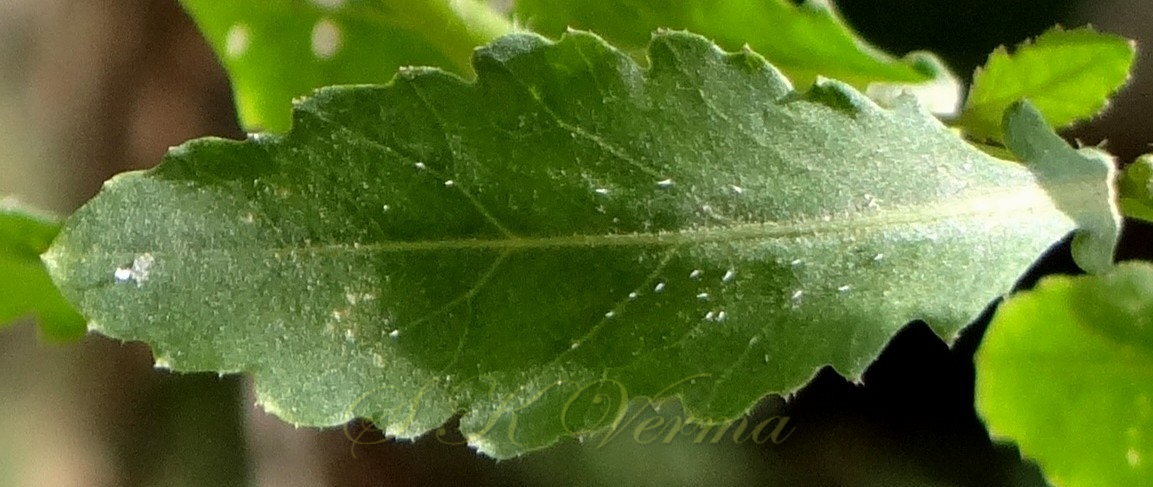
-134645.jpg)
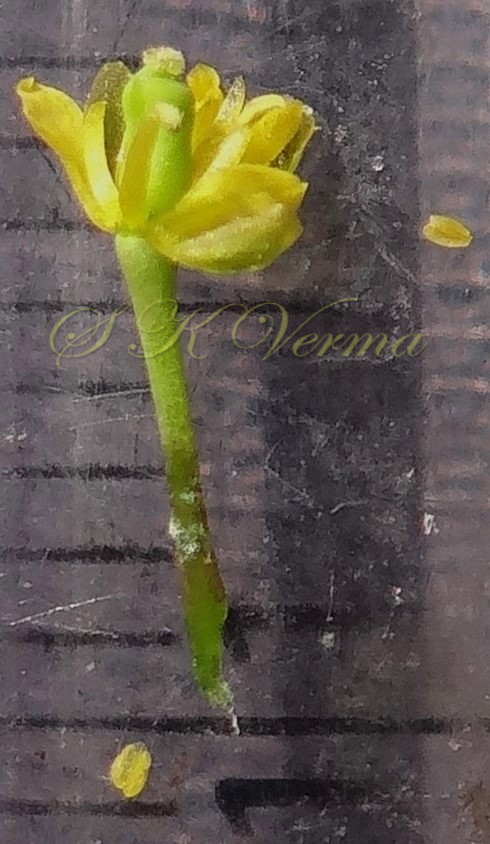

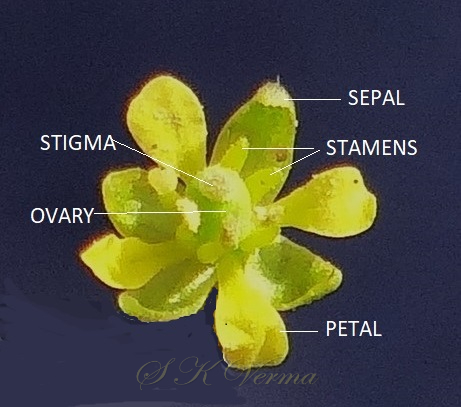

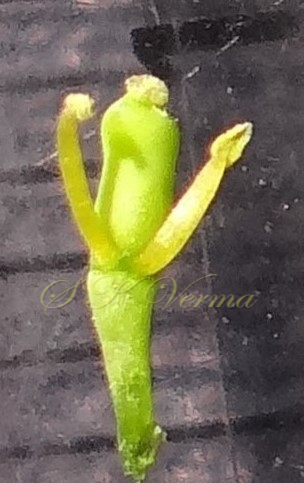


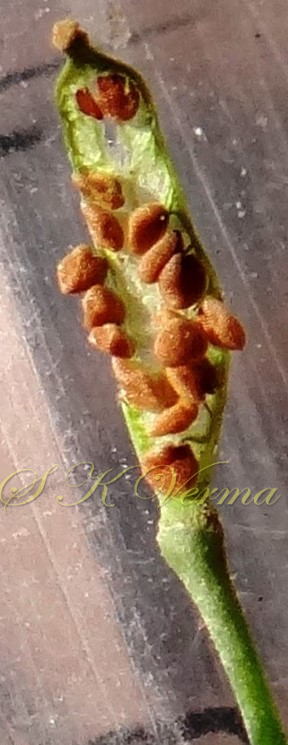
1435.jpg)
